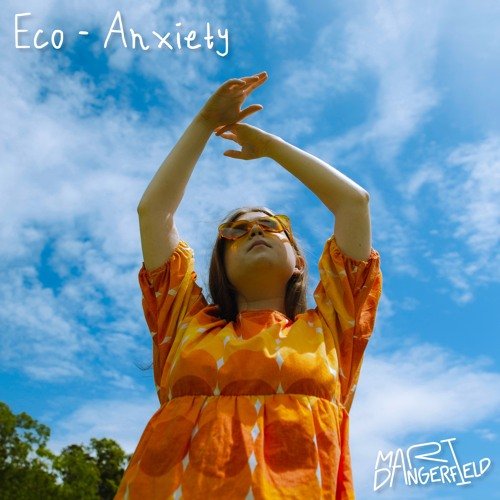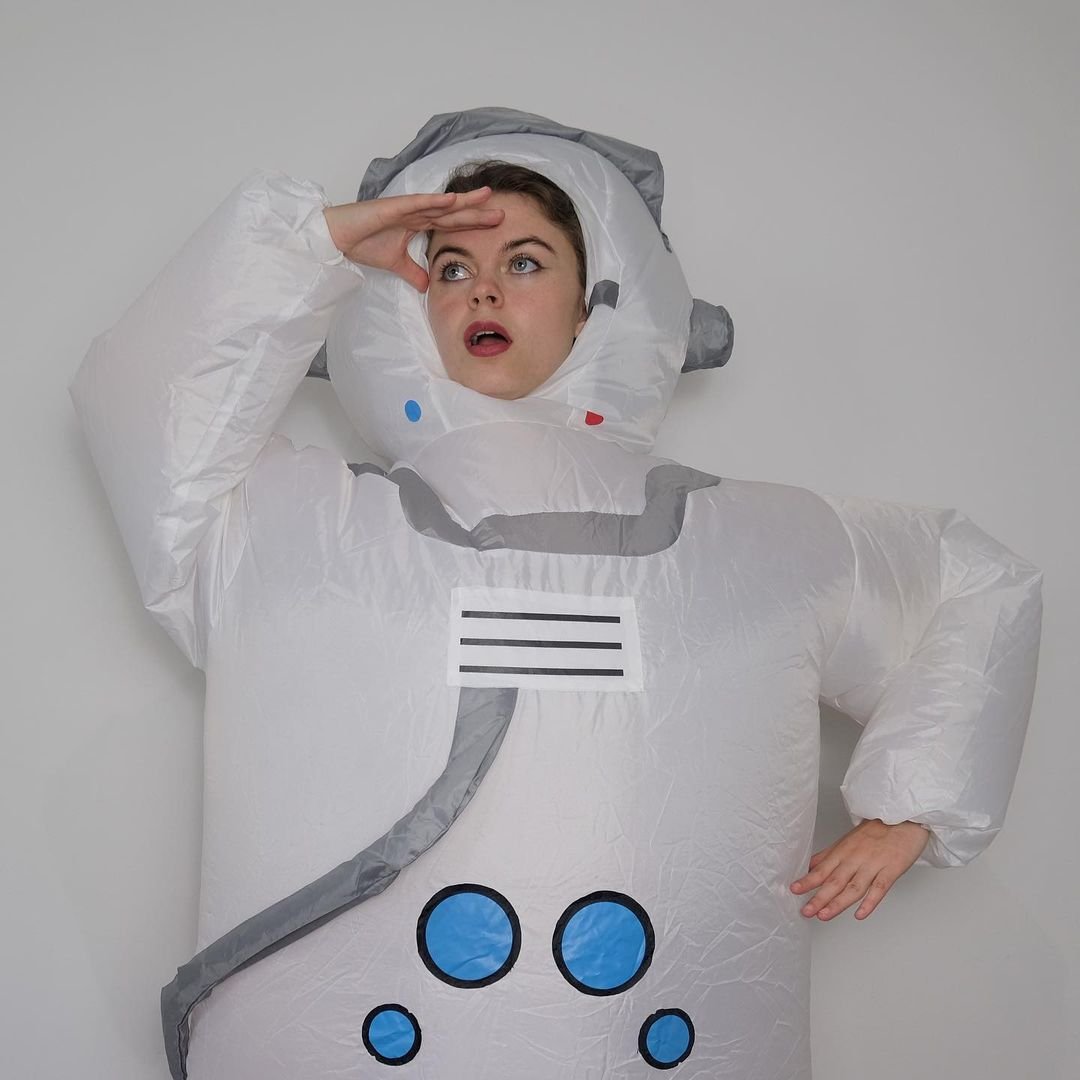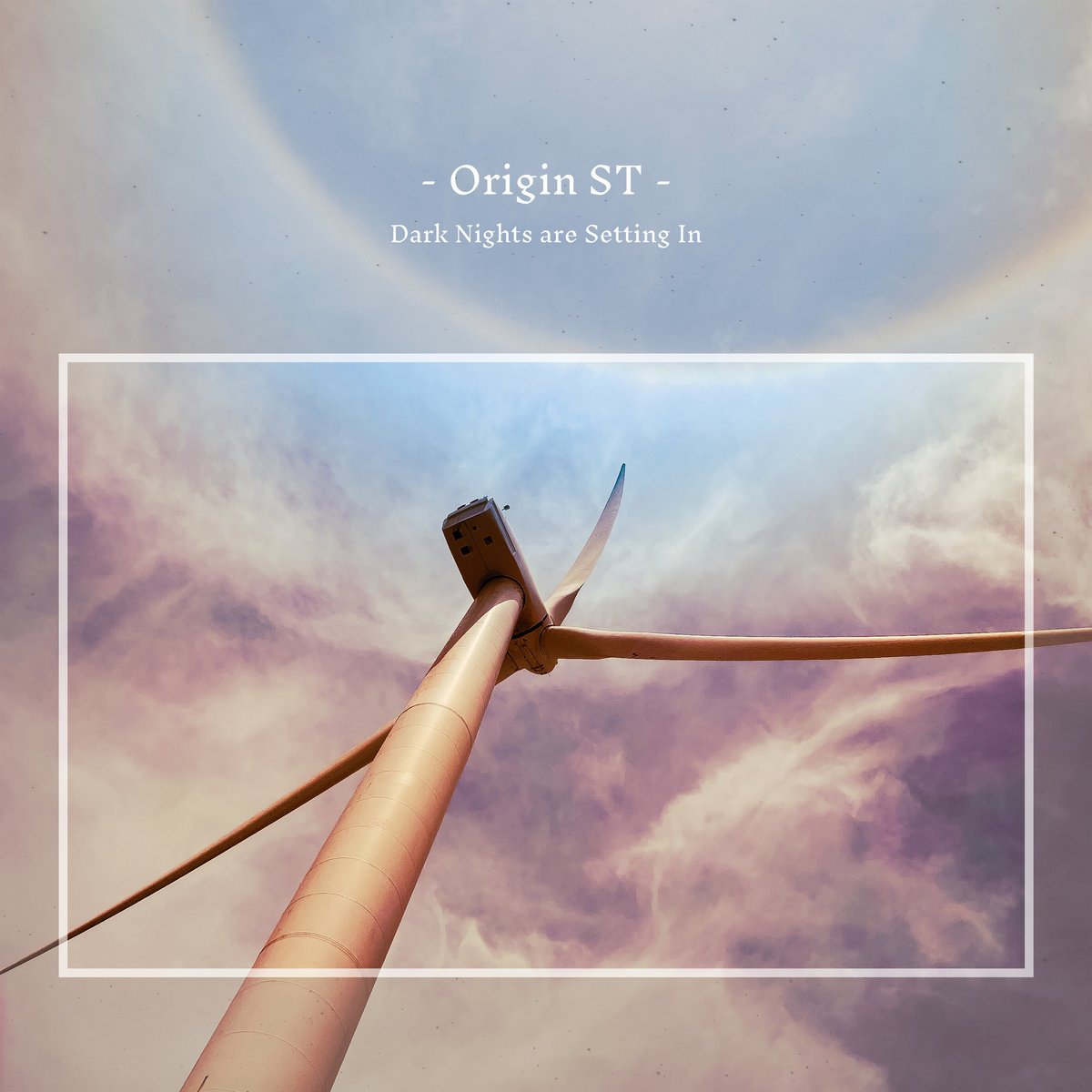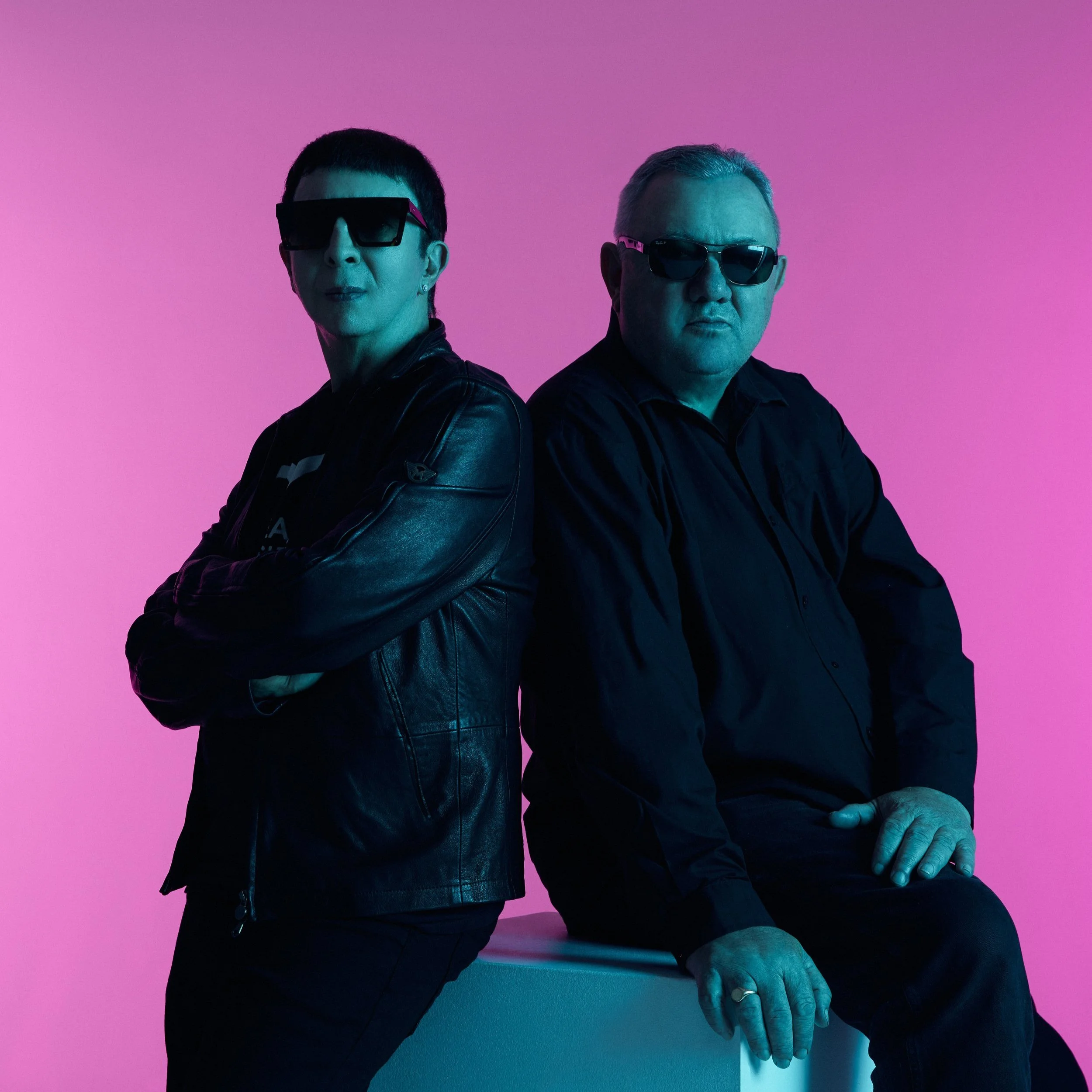‘There’s nothing like it, it’s the world.’ - Mari Dangerfield
Parts of the world are on fire. In others, there are floods and freak weather events displacing people from their homes and separating families. With the climate emergency in headlines daily, it’s not a surprise to hear artists raising their voices through their work.
This is a subject that Mari Dangerfield is passionate about. In her new EP ‘Eco-Fever’, she explores her personal climate anxieties, writes damning words towards the fast fashion industry, but remains optimistic about the future. We chat to Mari at the end of this article to find out more about the making of this EP.
A lot has happened since we wrote about Mari Dangerfield’s single ‘Webcam’ back in May 2021. The West-London artist became somewhat synonymous with the stylophone in recent years, using it extensively on her earlier work and certainly on her debut album ‘Love And Other Machines’. Before and after its release, Dangerfield worked hard to bring her musical concepts to life on her YouTube channel, creating videos for more than half of the album’s tracks including ‘Virtually’, ‘Dear Admirer’ and ‘1 Like’.
In October and November 2022, Mari hosted her own podcast, where she interviewed special guests all about the stylophone, called ‘Sound Of Stylus’. More recently, ‘Love And Other Machines’ was re-released when Mari signed with London label Dimple Discs, and she’s been busy playing gigs in and around London. These include an in-store performance at HMV Westfield and Dangerfield’s first headline gig outside of the capital at Bristol’s Cafe Kino. Mari Dangerfield’s latest EP ‘Eco-Fever’ was released at the end of June and opens with its first single ‘Eco-Anxiety’.
‘They say we have so little time, to tidy up this world because it’s on the decline, I’ve seen it all before my eyes, the part where everything dies.’
There’s a sadness in the melody of ‘Eco-Anxiety’, in its sustained trip-hop strings - it could be dreampop if not for its rolling beat. What’s most evident is Mari Dangerfield’s musical growth. None of these instruments are derived from the stylophone. Using what she’s learnt in recent years, this artist has created herself a wider musical landscape. There’s nothing anxious in the music Mari writes here, but there is a certain feeling of powerlessness. This is conveyed more so in her lyric.
‘Co2 is building up, the things I’m doing aren’t enough, no use pretending I can do it all on my own.’
What Dangerfield captures in ‘Eco-Anxiety’ is a feeling shared by many. The overwhelming sense that all our efforts are futile. With social media, it’s easy to read about international events and feel like you’re the only one who cares. In her chorus, Mari puts some of this into words, ‘And I feel lonely, feels like no one’s doing anything and everything is suffering.’
She also touches on the alarming published studies, ‘Catastrophising over all the science I’ve read,’ and those who refuse to believe it, ‘Tired of the ones denying.’ All these things build up: ‘This could be the end of the world,’ but the end has never sounded so beautiful. Mari holds you with this music, as someone who has truly felt all these feelings, softly and calmly saying, ‘I know, I know, we’ll get through this together.’
Mari Dangerfield’s opening field recording matches up perfectly with the visuals she and co-director Leigh Kemp shot for this song’s music video. Mari basks in the great outdoors to show vast green fields, wildlife and the seaside, just some of the things we’d miss in the advent of climate catastrophe. Choice shots also depict jumbo jets amid an entirely natural setting, rubbish on the beach and a seagull holding a facemask in its beak.
The ‘Eco-Fever’ EP has a couple of bonus tracks in addition to its four songs, the first of which is the Rory Childs remix for ‘Eco-Anxiety’. Childs retains the melodic feel of Mari’s composition, but demonstrates Dangerfield’s unease more clearly with escalating synths that threaten to overwhelm Mari’s voice.
‘I opened up to you and now I wish I never had.’
The synthpop ‘Ruins’ retains the melancholic landscape of its predecessor, but its subject matter is brought closer to home. Mari Dangerfield likens a relationship break-up in her chorus to ‘The ice caps melting in the sun’, connecting with the theme of climate change without stifling the concept.
For the most part, Dangerfield centres on the former, the lyric reading like an open monologue to an ex-lover, ‘The truth is that I always end up opening my mouth to say whatever’s on my mind…’ But Mari also cleverly intertwines both subjects, ‘As the cracks began to show, before we tumbled down, no way to fix us now.’ In ‘Ruins’, Mari shows that both can be dear to her heart, with different, but equal importance, ‘I mourn the end of us just like I mourn the planet earth.’
Always wearing striking outfits, Mari Dangerfield performs ‘Ruins’ in multiple locations for its music video, working once more with Leigh Kemp. The video finishes ominously with Mari leaving a rose at the foot of a plaque that reads ‘R.I.P Planet Earth, The Dawn of Time – 2023’.
The EP’s second bonus track is another take of ‘Ruins’, reimagined acoustically with songwriter, producer and Just Kids bandmember Rachel Still. Also mixed and mastered by Still, Mari’s voice has a dreamier quality, stretched out with reverb and shimmering backing vocals. Recently we asked Rachel what her favourite Taylor Swift song is and why, along with fourteen other artists where we discussed their careers.
‘I don't wanna hear about your fashion haul, I don't wanna wear what everybody else wears. Wanna be a witness of the fashion fall, instead of filling pockets of the billionaires.’
‘Fashion Haul’ is more forceful, the most hard-line track Mari Dangerfield has ever released. Gone is the sadness of the EP’s first half, with Mari speaking about a topic that particularly grinds her gears. The climate crisis isn’t simply fuelled by air-pollution - enormous amounts of waste on the ground level contribute too. One factor is fast fashion, which also poses problems outside of the environmental issues it creates. Mari addresses several of these in her quickfire lyrics, with pulsing synths, pointed bassline and Nile Rodgers-esque electric guitar from Rachel Still.
Wasting no time with introductions, Mari jumps straight in with her first verse that points the blame at billionaires. Fast fashion is driven by mass production, but it’s the workers who lose out, ‘Never mind the thousands who don't earn a living wage.’
But consumers aren’t innocent in the whole model, ‘Oh so cheap you wear it once, or leave it in your wardrobe, once it's out of fashion in the bin it goes, what on earth is happening to all these clothes?’ Influencers are to blame too, of which the term ‘fashion haul’ is derived from online videos where they display their wares and promote the brands who make them.
Plastic is a major contributor in the climate crisis, and with synthetic fibres in mass produced clothing, fast fashion further adds to the issues, ‘Oceans full of microplastic underwear, greenwashing our faces so we don't look there.’
Mari Dangerfield’s passion for the subject of fast fashion may have helped create one of her most angular and memorable tracks in her catalogue in ‘Fashion Haul’. In just three minutes, she splits open the complicated and divisive topic, making a clear and concise point of her stance, but in doing so, also creates a total certified banger of a track. The song was even played by Amy Lamé on BBC 6 Music, ‘Now to something brand-new that really caught my ears…I love this whole vibe and I hope you do as well.’
‘I've always loved the animals, they bring a calm that I don't know, that I could never know anywhere else…’
The last song on the main EP is its title track, ‘Eco-Fever’. Here, Mari Dangerfield finishes off this collection of songs with a poignant ode to the Earth and all it has to offer. Sonically, the sound design is akin to the EP’s opener, but with an uplifting twist. There’s also an element of disco in this track, with contributions from pop producer Joseph Copplestone, including mixing and mastering.
In this track, Dangerfield basks in the wonder of the natural world, ‘The tallest mountains, deepest seas, they draw me like a melody,’ referring to her love of the Earth as an ‘Eco-Fever’. There are chinks in the armour, as Mari sometimes reflects on our disregard for the planet, ‘As the temperature rises and the world gets excited, the season's turning over through catastrophe.’ But ‘Eco-Fever’ has the perfect parting message. It isn’t nagging, nor angry, or even sad. It’s simply, ‘Isn’t this place we inhabit so utterly beautiful?’
‘There’s nothing like it, it’s the world.’
With the ‘Eco-Fever’ EP, Mari Dangerfield continues to portray her artistry authentically, her lyricism passionate about a subject close to her heart, and her musical instinct growing beyond the buzzed constraints of the stylophone. Mari Dangerfield has always thought outside the box, but now she’s thinking outside of the box she thought she was in.
Continue reading for our Q&A with Mari Dangerfield. We ask about the subject matter surrounding the ‘Eco-Fever’ EP, the ‘Eco-Anxiety’ music video, the fast fashion industry and her bonus track contributors. Beyond the EP, we ask Mari about signing to Dimple Discs, her love for David Bowie and much more below!
1. It's great to hear you writing so passionately for your new EP 'Eco-Fever'. I know it all began with 'Eco-Anxiety' during the making of your debut album, but was there a specific event that inspired the writing of that song?
Thank you! My memory of writing Eco-Anxiety was definitely in those first few weeks of the pandemic when we were told to stay inside and stories of the pandemic's origin focussed on unnatural contact between humans and animals. Whether or not they were true, they reinforced my already existing fears about life on our planet. I genuinely felt at that time that how we were living then could be how things would stay for the rest of my life.
2. The locations you chose for the 'Eco-Anxiety' music video are gorgeous, where was that one shot?
They really are. I decided to try a more casual approach for some of this video. The planned shots were filmed in Richmond Park, London and the casual ones were on Brighton beach just before I played a show there and in Sesimbra, Portugal, where I went for a short family holiday. I like the fact that there were some serendipitous moments such as the seagull attempting to eat a face mask.
3. 'Ruins' has something of a dual theme, what was behind the idea to combine a break-up song with the environment?
I initially decided on the theme of this song when I wrote the chorus lyric. I thought it would be a cool concept for a song to compare the way you feel about losing a person from your life to losing the planet you used to inhabit. Now that you mention it, I could have been subconsciously inspired by a musical a friend of mine wrote where the planet earth and a human being were in a relationship.
Then something happened to me I think not long after that that made the song really hit home, and drove me to complete it.
4. There seems to be noticeably less stylophone on this EP, is that an instrument you're branching out from or is there still a little bit on there?
You're right! There's actually no stylophone on the EP at all. I'm proud of what I've worked on with the stylophone and it's still a part of me in the Sound Of Stylus podcast and the (hopefully) upcoming YouTube channel, but it felt like the right time to try and challenge myself to create something a little different. Music stays exciting for me when I can experiment a little.
5. I've never heard an artist put the fashion industry into music the way you have with 'Fashion Haul', did you begin writing this song knowing what it would be about? What sparked the theme in this one?
I've always been nervous about putting this one out as it's such a bold one for me and very few people I know are aware of what goes on, probably because brands do such a good job of keeping things a secret. Several years ago, I discovered a fair fashion campaigner called Venetia La Manna. Both her and her husband really woke me up to what's going on with pay, conditions and output in so many of the brands people buy from all the time. I got to meet them for the first time last April when I attended a protest down Oxford Street to commemorate 10 years since the Rana Plaza disaster occurred. I tried to write Fashion Haul from the point of view of someone like Venetia who's calling out an influencer who's just got a big brand deal with an online fast fashion brand and is doing a haul video. My main source of inspiration for the song was her video series 'recipes for disaster' where she very cleverly exposes a brand by telling a story while she puts together the fateful ingredients in a 'Saturday Kitchen' tone. The last one was lululemon and poppy seed muffins. Get it?
6. I feel like the narrative is shifting on people buying into the big brands with people thrifting more than before. Do you think we're moving in the right direction or is there more work to be done there?
I think it's a really tricky one and we're not there yet. On the one hand, it's about getting consumers to switch from buying new clothes quite cheap on a regular basis to buying less frequently from more expensive ethical brands or second hand, which is neither appealing nor in many cases affordable to many; On the other hand, these big brands should be doing their part to reduce their output, increase pay and improve working conditions for their workers. At the moment, they're often very good at pretending they're doing those things and actually doing the opposite!
7. The title track feels like you're describing a stalemate, was there a part of you that wanted to take the ending of this concept into a darker place, or equally, give it a happier ending?
The main reason this track exists is that I felt the rest of the EP was a little dark and needed a positive boost. Of course, the song isn't entirely happy either, but I think that kind of reflects on what the world is as a whole: a mixture of good and bad. In this song, I'm exploring the highs of loving life, nature, the good summer weather versus the climate crisis, the dangers it poses to our future and the consequences of an overheating planet that we often witness in the summer season, such as raging fires and severe floods.
8. In addition to the four tracks as part of the main EP, you also have a couple of bonus tracks too. What was it like working with Rory Childs and Rachel Still for 'Eco-Anxiety' and 'Ruins' respectively?
Rory is incredible. He made the remix very very quickly and I loved it instantly. I think he's very talented and keeps busy in the industry!
Rachel is someone I feel incredibly lucky to know and to have worked with. A wonderful multi-instrumentalist, singer, writer, performer...She not only played the guitar parts, she mixed and mastered it too, and she played guitar and bass on Fashion Haul!
9. It can be hard when the issue of climate and the environment is so complex and overwhelming, how do you fight the personal climate burnout?
It certainly can. I think the way I handle it is by knowing that I'm doing my best to do my bit. It may not be much, but at least I'm (hopefully) doing right by my conscience.
10. It's been a while since we last interviewed you! You've since been signed to Dimple Discs, tell me about that, how did that all come about?
Brian, who's in charge of the label, discovered me at a show at Amp Studios in East London hosted by Trust The Doc in January 2021. He got in touch a few months later and it all went from there!
11. I know you're greatly influenced by David Bowie and there's never a bad moment to gush about him, what do you think is the best album he ever put out?
I'm going to say "Low" just because I think it's really in a world of its own, not just within his catalogue but in general. I once arranged it for jazz band and still love it now!
12. I've been asking producers this recently in our Q&A's, what's your feeling on AI music? Is this something to worry about, or is it just another tool?
If AI hasn't created the music itself, or used someone else's property to do so, but been used to improve a workflow or enhance the sound of something, I think that's where it could be interesting. Apart from that, I think the risk of music becoming homogenized is only increased by these tools, particularly if they are widely adopted. I also don't like the problems it poses to ownership if the creator, or crucial idea generator, of a piece of music isn't even a human being.
13. 2023 is flying by so fast! What are you most looking forward to doing with the rest of your year?
Of course I'd like to work on my second album, but I'd also like to take some time to reflect on my life as a whole and how I can improve my overall well-being as much as possible, within the limitations I have.
--------
Purchase Mari Dangerfield’s EP ‘Eco-Fever’ on CD and download from her Bandcamp page, where you’ll also find copies of her debut album ‘Love And Other Machines’.
Support Mari Dangerfield on Patreon to get exclusive access to demo recordings and monthly Zoom hangouts.
Follow Mari Dangerfield on Instagram, Facebook and Twitter @maridangerfield.
--------
Follow and interact with Moths and Giraffes on Instagram and Facebook @mothsandgiraffes, and on Twitter @mothsgiraffes.
We have a Spotify Playlist! Featuring almost every artist we've written about on Moths and Giraffes, find some new music here.
For submissions, or if you’d just like to send us your thoughts, don’t hesitate to contact us via our social media accounts, our contact page, or via email at mothsandgiraffes@outlook.com. We receive a lot of emails though, so please bear with us!
--------
Do you like what you heard here? Then check out the music from these artists we’ve written about!











